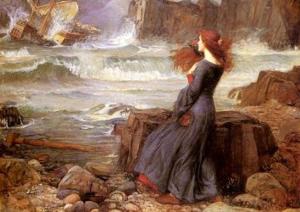In the King's Name: The Cruise of the "Kestrel"
Nonfiction, Religion & Spirituality, New Age, History, Fiction & Literature| Author: | George Manville Fenn | ISBN: | 9781465620927 |
| Publisher: | Library of Alexandria | Publication: | March 8, 2015 |
| Imprint: | Language: | English |
| Author: | George Manville Fenn |
| ISBN: | 9781465620927 |
| Publisher: | Library of Alexandria |
| Publication: | March 8, 2015 |
| Imprint: | |
| Language: | English |
Morning on board the Kestrel, his Britannic majesty’s cutter, lying on and off the south coast on the lookout for larks, or what were to her the dainty little birds that the little falcon, her namesake, would pick up. For the Kestrel’s wings were widespread to the soft south-easterly breeze that barely rippled the water; and mainsail, gaff topsail, staysail, and jib were so new and white that they seemed to shine like silver in the sun. The larks the hover-winged Kestrel was on the watch to pick up were smuggling boats of any sort or size, or Jacobite messages, or exiles, or fugitives—anything, in fact, that was not in accordance with the laws of his most gracious majesty King George the Second, whose troops had not long before dealt that fatal blow to the young Pretender’s hopes at the battle of Culloden. The sea was as bright and blue as the sea can look in the Channel when the bright sun is shining, and the arch above reflects itself in its bosom. The gulls floated half asleep on the water, with one eye open and the other closed; and the pale-grey kittiwakes seemed to glide about on the wing, to dip down here and there and cleverly snatch a tiny fish from the surface of the softly heaving sea. On the deck of the little cutter all was in that well-known apple-pie order customary on board a man-of-war, for so Lieutenant Lipscombe in command always took care to call it, and in this he was diligently echoed by the young gentleman who acted as his first officer, and, truth to say, second and third officer as well, for he was the only one—to wit, Hilary Leigh, midshipman, lately drafted to this duty, to his great disgust, from on board the dashing frigate Golden Fleece. “Man-o’-war!” he had said in disgust; “a contemptible little cock-boat. They ought to have called her a boy-o’-war—a little boy-o’-war. I shall walk overboard the first time I try to stretch my legs.” But somehow he had soon settled down on board the swift little craft with its very modest crew, and felt no small pride in the importance of his position, feeling quite a first lieutenant in his way, and for the greater part of the time almost entirely commanding the vessel. She was just about the cut of a goodsized modern yacht, and though not so swift, a splendid sailer, carrying immense spars for her tonnage, and spreading canvas enough to have swamped a less deeply built craft.
Morning on board the Kestrel, his Britannic majesty’s cutter, lying on and off the south coast on the lookout for larks, or what were to her the dainty little birds that the little falcon, her namesake, would pick up. For the Kestrel’s wings were widespread to the soft south-easterly breeze that barely rippled the water; and mainsail, gaff topsail, staysail, and jib were so new and white that they seemed to shine like silver in the sun. The larks the hover-winged Kestrel was on the watch to pick up were smuggling boats of any sort or size, or Jacobite messages, or exiles, or fugitives—anything, in fact, that was not in accordance with the laws of his most gracious majesty King George the Second, whose troops had not long before dealt that fatal blow to the young Pretender’s hopes at the battle of Culloden. The sea was as bright and blue as the sea can look in the Channel when the bright sun is shining, and the arch above reflects itself in its bosom. The gulls floated half asleep on the water, with one eye open and the other closed; and the pale-grey kittiwakes seemed to glide about on the wing, to dip down here and there and cleverly snatch a tiny fish from the surface of the softly heaving sea. On the deck of the little cutter all was in that well-known apple-pie order customary on board a man-of-war, for so Lieutenant Lipscombe in command always took care to call it, and in this he was diligently echoed by the young gentleman who acted as his first officer, and, truth to say, second and third officer as well, for he was the only one—to wit, Hilary Leigh, midshipman, lately drafted to this duty, to his great disgust, from on board the dashing frigate Golden Fleece. “Man-o’-war!” he had said in disgust; “a contemptible little cock-boat. They ought to have called her a boy-o’-war—a little boy-o’-war. I shall walk overboard the first time I try to stretch my legs.” But somehow he had soon settled down on board the swift little craft with its very modest crew, and felt no small pride in the importance of his position, feeling quite a first lieutenant in his way, and for the greater part of the time almost entirely commanding the vessel. She was just about the cut of a goodsized modern yacht, and though not so swift, a splendid sailer, carrying immense spars for her tonnage, and spreading canvas enough to have swamped a less deeply built craft.















